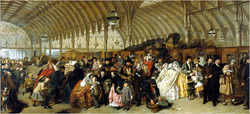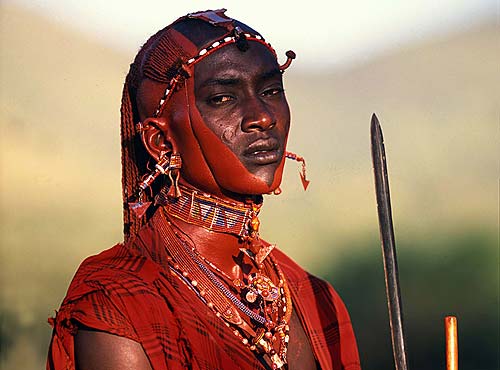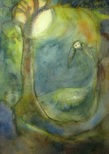
. The Victorian Period and The Strange Case of Dr. Jekyll and Mr. Hyde: A Time of Change
The Victorian period is a time of scientific, economic and social change that took place from 1837 to 1901. The flourishing England ruled by Queen Victoria was the main setting for this significant slice of human history . During this time, the Londonians witnessed how the quiet streets became crowded with newcomers and how the crumbling buildings grew taller, but more attractive. There were also breakthroughs in science which are relevant still today. And as a result of social constraint, ladies and gentlemen would unleash their socially undesirable behaviors. In the midst of all this turmoil, In 1887, Robert Louis Stevenson published The Strange Case of Dr. Jekyll and Mr. Hyde, a short novel that conveys three important aspects of the Victorian period: the advancement in science, the economic growth, and the awake of socially repressed feelings and behaviors.
A distinguishing aspect of the Victorian period that is plainly evident in The Strange Case of Dr. Jekyll and Mr. Hyde is the advancement in science. As the Victorian period was unfolding, the growing scientific community devoted their time to study new breakthroughs and discoveries. In a similar way, Dr. Jekyll, one of the main characters of Stevenson’s short novel, was a dedicated scientist. In his laboratory, there were “tables laden with chemical apparatus, and the floor [was] strewn with crates and littered with packing straw” (Stevenson 69). It is precisely during the Victorian period that scientist “ Thomas Graham “invented the “Graham’s Law" about the diffusion of gases, and [he] is widely considered the father of colloid chemistry” (“Thomas Graham” 1). Also, Charles Darwin published the Origin of Species in 1855, which would cause a major shift in the course of science. As a parallel, Dr. Jekyll, though in fiction, invents a potion to change his physical appearance and become younger. Hence, the story vividly depicts the events that were taking place in the science field during the nineteenth century.
As it is portrayed in the Strange Case of Dr Jekyll and Mr. Hyde, the attempts to conceal socially questionable behaviors led members of the higher class to display a double identity during the Victorian period. Dr. Jekyll is described as a wealthy and righteous man; “he had always been known for charities,” the narrator explains “he was no less distinguished for religion. He was busy, he was much in the open air, he did good” (Stevenson 56). Despite his reputation and rectitude, Dr. Jekyll successfully created a potion under which effects he became a different person. Whenever he used the potion, Dr. Jekyll would turn into Mr. Hyde, who was described in the text as displeasing and detestable. The chemist had repressed socially prohibited behaviors all his life, but decided to change and obtain freedom by becoming somebody else. Mr. Hyde, he a victim of neither prejudice nor persecution for his actions. Like Dr. Jekyll, Victorians from the upper classes would engage in unaccepted behaviors. In the 1880’s there was a sex scandal that involved people belonging to the upper classes. The married son of an industrialist gentleman had an affair with a young woman. There is evidence that “it was shortly after their marriage and early in Marth a's pregnancy that Haywood began an affair with Elizabeth, daughter of George Higginbottom, a manager at the Beatson Clark glassmaking firm” (Brooke 1). The infidelity of this man was kept as a secret; otherwise, he would have gone through a real nightmare. Mr. Haywood and other women and men like Dr. Jekyll, decided to be part of the starting change in morality view during the late Victorian period.
In the literary text The Strange Case of Dr Jekyll and Mr. Hyde, London is implicitly described as a growing city, which can be related to the actual economic growth that England in general was undergoing. In fact, at the peak of the European booming industry, when the text was written, England was building a rather healthy economy, partially induced by the industrial revolution. According to Professor Roger Burt at the University of Exeter, United Kingdom; “Overall the [British] economy trebled in size between 1870 and 1913, people became much better off, and it showed in all sorts of social indicators”(Burt 1). The fact that the British economy grew three times during the late Victorian period meant that the infrastructure would also improve. In Stevenson’s short novel, there is a blending of new and old buildings. Furthermore, in The Strange Case of Dr. Jekyll and Mr. Hyde the city has light posts, banks, and police officers which are social indicators of a growing economy. In general, the Victorians were undergoing a significant change in their economic power.
The Victorian period marked a time in history during which the society in England underwent abrupt changes. Science played an important role during the nineteenth century because much of the aspiration for scientific knowledge was triggered at that time. The view of morality started to change, and people timidly started to engage into socially questionable behaviors. The economy grew considerably during the nineteenth century, as a result of the industrial revolution. Finally, in the light of factual information and the aspects analyzed from the text The Strange Case of Dr Jekyll and Mr. Hyde, the Victorian period was a stepping stone for the scientific, social, and economic development of England and Europe in 1800’s.
Works Cited
Brooke, Chris. “The Victorian sex scandal: 1874 contract reveals how cheating husband
bought teenage lover's silence after she fell pregnant.” Mail Online 11 December 2008 < http://www.dailymail.co.uk/news/article-1093579/A-Victorian-sex-scandal-1874-contract-reveals-cheating-husband-bought-teenage-lovers-silence-fell-pregnant.html>
Burt, Roger. (2003). “British Economic and Social History 1750-1914.” School of Social,
Political, and Sociological Studies. Retrieved 26 September, 2012
<http://people.exeter.ac.uk/RBurt/exeteronly/HEC2005/Lectures12.htm>
Stevenson, Robert. The Strange Case of Dr. Jekyll and Mr. Hyde. Etext Center. Retrieved
23 September 2011 <http://etext.virginia.edu/etcbin/toccernew2?id=SteJekl.
sgm&images=images/mode<ng&data=/texts/english/modeng/parsed&tag=public
&part=all>
“Thomas Graham” Retrieved 25 September , 2012 <http://www.victorianweb.org/sculpture/brodie/4.html>
The Victorian period is a time of scientific, economic and social change that took place from 1837 to 1901. The flourishing England ruled by Queen Victoria was the main setting for this significant slice of human history . During this time, the Londonians witnessed how the quiet streets became crowded with newcomers and how the crumbling buildings grew taller, but more attractive. There were also breakthroughs in science which are relevant still today. And as a result of social constraint, ladies and gentlemen would unleash their socially undesirable behaviors. In the midst of all this turmoil, In 1887, Robert Louis Stevenson published The Strange Case of Dr. Jekyll and Mr. Hyde, a short novel that conveys three important aspects of the Victorian period: the advancement in science, the economic growth, and the awake of socially repressed feelings and behaviors.
A distinguishing aspect of the Victorian period that is plainly evident in The Strange Case of Dr. Jekyll and Mr. Hyde is the advancement in science. As the Victorian period was unfolding, the growing scientific community devoted their time to study new breakthroughs and discoveries. In a similar way, Dr. Jekyll, one of the main characters of Stevenson’s short novel, was a dedicated scientist. In his laboratory, there were “tables laden with chemical apparatus, and the floor [was] strewn with crates and littered with packing straw” (Stevenson 69). It is precisely during the Victorian period that scientist “ Thomas Graham “invented the “Graham’s Law" about the diffusion of gases, and [he] is widely considered the father of colloid chemistry” (“Thomas Graham” 1). Also, Charles Darwin published the Origin of Species in 1855, which would cause a major shift in the course of science. As a parallel, Dr. Jekyll, though in fiction, invents a potion to change his physical appearance and become younger. Hence, the story vividly depicts the events that were taking place in the science field during the nineteenth century.
As it is portrayed in the Strange Case of Dr Jekyll and Mr. Hyde, the attempts to conceal socially questionable behaviors led members of the higher class to display a double identity during the Victorian period. Dr. Jekyll is described as a wealthy and righteous man; “he had always been known for charities,” the narrator explains “he was no less distinguished for religion. He was busy, he was much in the open air, he did good” (Stevenson 56). Despite his reputation and rectitude, Dr. Jekyll successfully created a potion under which effects he became a different person. Whenever he used the potion, Dr. Jekyll would turn into Mr. Hyde, who was described in the text as displeasing and detestable. The chemist had repressed socially prohibited behaviors all his life, but decided to change and obtain freedom by becoming somebody else. Mr. Hyde, he a victim of neither prejudice nor persecution for his actions. Like Dr. Jekyll, Victorians from the upper classes would engage in unaccepted behaviors. In the 1880’s there was a sex scandal that involved people belonging to the upper classes. The married son of an industrialist gentleman had an affair with a young woman. There is evidence that “it was shortly after their marriage and early in Marth a's pregnancy that Haywood began an affair with Elizabeth, daughter of George Higginbottom, a manager at the Beatson Clark glassmaking firm” (Brooke 1). The infidelity of this man was kept as a secret; otherwise, he would have gone through a real nightmare. Mr. Haywood and other women and men like Dr. Jekyll, decided to be part of the starting change in morality view during the late Victorian period.
In the literary text The Strange Case of Dr Jekyll and Mr. Hyde, London is implicitly described as a growing city, which can be related to the actual economic growth that England in general was undergoing. In fact, at the peak of the European booming industry, when the text was written, England was building a rather healthy economy, partially induced by the industrial revolution. According to Professor Roger Burt at the University of Exeter, United Kingdom; “Overall the [British] economy trebled in size between 1870 and 1913, people became much better off, and it showed in all sorts of social indicators”(Burt 1). The fact that the British economy grew three times during the late Victorian period meant that the infrastructure would also improve. In Stevenson’s short novel, there is a blending of new and old buildings. Furthermore, in The Strange Case of Dr. Jekyll and Mr. Hyde the city has light posts, banks, and police officers which are social indicators of a growing economy. In general, the Victorians were undergoing a significant change in their economic power.
The Victorian period marked a time in history during which the society in England underwent abrupt changes. Science played an important role during the nineteenth century because much of the aspiration for scientific knowledge was triggered at that time. The view of morality started to change, and people timidly started to engage into socially questionable behaviors. The economy grew considerably during the nineteenth century, as a result of the industrial revolution. Finally, in the light of factual information and the aspects analyzed from the text The Strange Case of Dr Jekyll and Mr. Hyde, the Victorian period was a stepping stone for the scientific, social, and economic development of England and Europe in 1800’s.
Works Cited
Brooke, Chris. “The Victorian sex scandal: 1874 contract reveals how cheating husband
bought teenage lover's silence after she fell pregnant.” Mail Online 11 December 2008 < http://www.dailymail.co.uk/news/article-1093579/A-Victorian-sex-scandal-1874-contract-reveals-cheating-husband-bought-teenage-lovers-silence-fell-pregnant.html>
Burt, Roger. (2003). “British Economic and Social History 1750-1914.” School of Social,
Political, and Sociological Studies. Retrieved 26 September, 2012
<http://people.exeter.ac.uk/RBurt/exeteronly/HEC2005/Lectures12.htm>
Stevenson, Robert. The Strange Case of Dr. Jekyll and Mr. Hyde. Etext Center. Retrieved
23 September 2011 <http://etext.virginia.edu/etcbin/toccernew2?id=SteJekl.
sgm&images=images/mode<ng&data=/texts/english/modeng/parsed&tag=public
&part=all>
“Thomas Graham” Retrieved 25 September , 2012 <http://www.victorianweb.org/sculpture/brodie/4.html>




 RSS Feed
RSS Feed